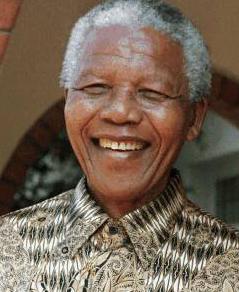Rethinking Mandela: Champion or Obstacle to Justice?
Global Research News Hour Episode 48

“We, the people of South Africa, declare for all our country and the world to know:
That South Africa belongs to all who live in it, black and white, and that no government can justly claim authority unless it is based on the will of the people.” Opening words of the Freedom Charter, 1955[1]
“The nationalisation of the mines, banks and monopoly industries is the policy of the ANC, and the change or modification of our views in this regard is inconceivable. Black economic empowerment is a goal we fully support and encourage, but in our situation state control of certain sectors of the economy is unavoidable.” Nelson Mandela, January 1990[2]
LISTEN TO THE SHOW
Length (57:47)
Click to download the audio (MP3 format)
From the time of his death on December 5, 2013 to his burial ten days later, and beyond, Nelson Mandela has been the subject of near universal praise from prominent figures around the world.
Not that Mandela was not a towering figure in his own right.
A prominent and committed militant with the African National Congress since the 40s, Mandela was among those guiding the ANC in a more radical and revolutionary direction. He pushed for direct actions against apartheid, and had spent twenty seven years as a political prisoner. He was an inspiration to millions in the global anti-apartheid movement when it was not fashionable for Western leaders to critique South Africa’s racist-based political system.
It is his choices following his release from prison, however, that warrants scrutiny. For example, during negotiations with the De Klerk government, the ANC ended up abandoning the 1955 Freedom Charter condition of nationalizing the country’s banks, mining and other major industries. The ANC later came to embrace IMF and World Bank Sponsored neoliberal structural adjustment programs, such as privatization and government cut-backs which struck a blow to social conditions for South Africa’s most marginalized people.
Also controversial was the Truth and Reconciliation Commission, pioneered under Mandela, which granted amnesty for crimes conducted by high officials in South Africa provided they come forward to provide full disclosure of the wrongdoing.
The Global Research News Hour speaks to two individuals with roots in the anti-apartheid movement: Margaret Kimberley, senior editor and columnist with the Black Agenda Report, and Professor Eliakim Sibanda, Chair of the University of Winnipeg History Department originally from Zimbabwe.
These two guests help introduce much needed complexity to the far to simplistic portrayals of Mandela’s life and legacy which dominate the media narrative presently.
LISTEN TO THE SHOW
Length (57:47)
Click to download the audio (MP3 format)
The Global Research News Hour, hosted by Michael Welch, airs on CKUW 95.9FM in Winnipeg Fridays at 1pm CDT. The programme is also broadcast weekly (Monday, 5-6pm ET) by theProgressive Radio Network in the US, and is available for download on the Global Research website.
Community Radio Stations carrying the Global Research News Hour:
CHLY 101.7fm in Nanaimo, B.C – Thursdays at 1pm PT
Port Perry Radio in Port Perry, Ontario – Thursdays at 1pm ET
Notes:
1) http://faculty.washington.edu/lhc3/494b/The%20Freedom%20Charter.pdf
3) http://www.justice.gov.za/trc/legal/bill.htm

